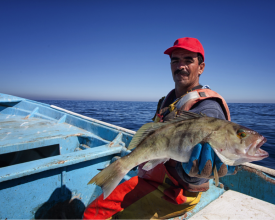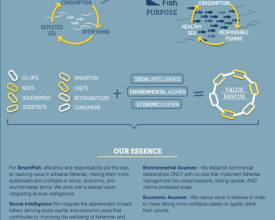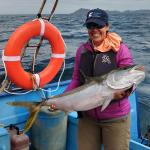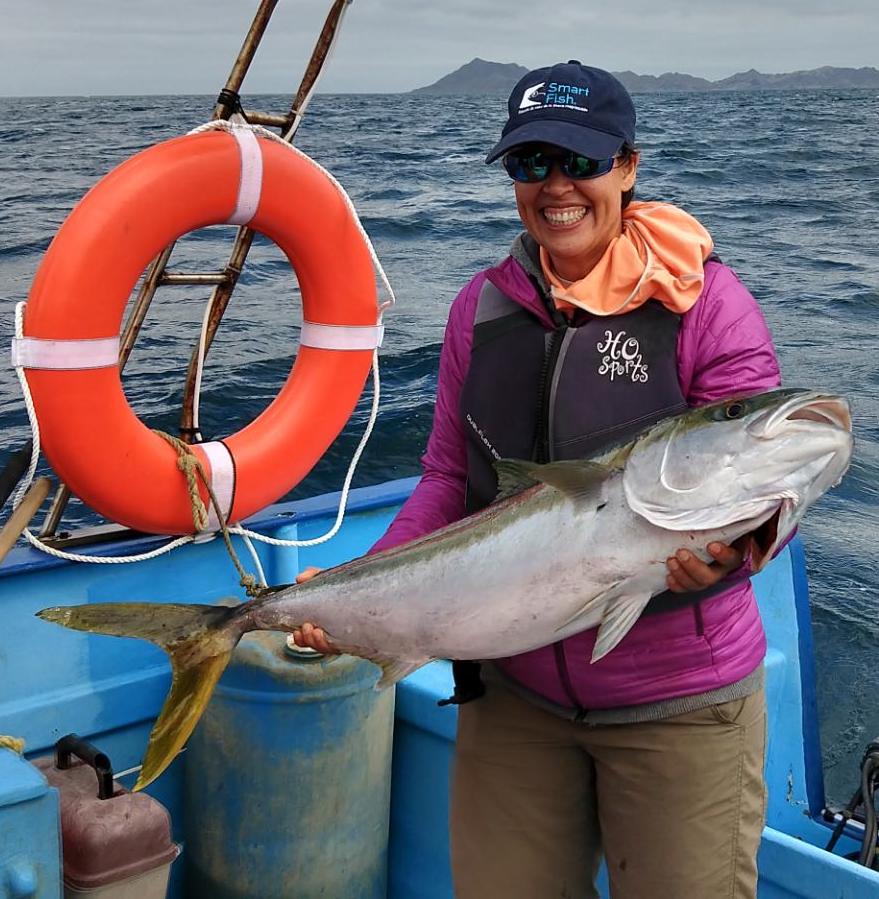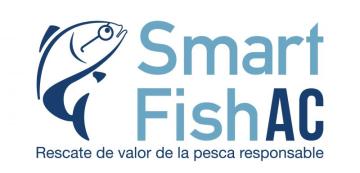
Reduce Overfishing and Improve Livelihoods of Artisanal Fishers - SmartFish
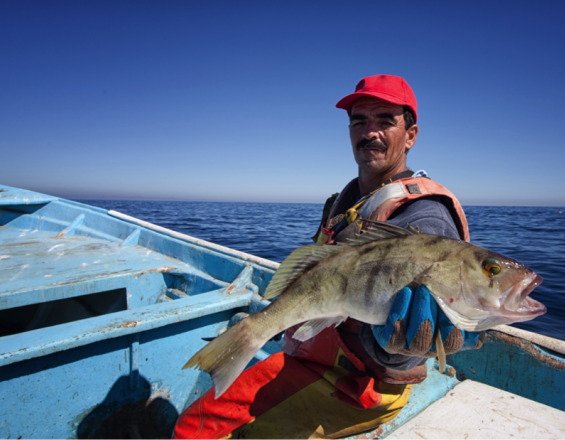
The SmartFish Group, a social enterprise, directly incentivizes Mexican artisanal fishing cooperatives to improve their environmental and social performance. SmartFish NGO incubates worthy co-ops to market readiness with responsible seafood, empowering fishers to catch and produce high quality, responsibly caught seafood to overcome the vicious cycle of overfishing. SmartFish Inc. acts as a "good intermediary," placing their triple impact seafood into prefential markets with transparency and traceability, rewarding them for their responsible practices.
Contexto
Défis à relever
SmartFish is bridging the gap between artisanal fishers who are committed to sustainable fishing practices and social justice, and consumers seeking healthy, sustainably caught seafood. To help fishermen and their families overcome the vicious cycle of overfishing, SmartFish incubates strong, artisanal fishing co-ops to improve their fishing, handling, processing and business practices to rescue the value of their catch and produce premium quality seafood that is independently verifiable as socially and environmentally responsible or improving. SmartFish’s Value Rescue intervention treats artisanal fishing as a complex system, taking into account factors from social dynamics in remote fishing communities to consumer preferences and trends. This integrated approach ensures that access to preferential markets is tied to sustainable fishing practices and that increased income does not increase overfishing.
Ubicación
Procesar
Summary of the process
80 percent of the Mexico’s fisheries have been pushed to or beyond their biological limits and are in need of strict management plans to restore them. In response to this growing threat, Smartfish integrates diverse stakeholders to share social intelligence on the value of sustainable fishing. For this to be effective, Smartfish knows that it has to work with the right people. That is why we establish relationships with and between reputable co-ops, NGOs, fisheries and fisherman who promote sustainable fishing practices. To cultivate a market for this sustainable seafood, Smartfish connects responsible fisherman who supply the best quality seafood with the restaurants who demand it. To support and protect the efforts of sustainable fisherman, we work to design and implement proper fishery management to conserve ecosystems, but also sustain livelihoods and ensure food security. To ensure no value is lost in sustainable artisanal fishing Smartfish uses these building blocks to bring the right people together to design and implement effective and responsible fishing practices.
Building Blocks
Partner fishery selection criteria and process
To maximize SmartFish’s impact, we drew on empirical research and years of experience to establish fishery selection criteria. Fishery partners must:
a) Be formally organized, with effective institutional structure (eg a cooperative) that includes mechanisms for decision-making, for enforcing group decisions and a collective understanding of and commitment and adherence to fishery sustainability principles;
b) Have previously and formally adopted sustainability measures (eg: fishing reserves, daily catch quotas, or size limits);
c) Target biologically resilient species.
We established an Impact Division within SmartFish to determine the elgigibility of potential fishery partners as well as to track the social, environmental and business performance of partners before, during and after our interventions. Please see Impact Evaluation building block for more information.
Enabling factors
Mexico's strong tradition for cooperatives coupled with legal and fiscal underpinnngs for them have resulted in among the strongest fishing cooperatives worldwide. We prefer to work with co-ops that have self organized to ahcieve strong social and environmental performance. However we are also happy to collaborate with groups that have been assisted by NGOs (eg COBI AC, Niparajá AC, and ProNatura Noroeste AC) to improve social and environmental performance enough to meet our strict criteria.
Lesson learned
Cutting corners on these criteria can create problems. While we would like our model to work for all fishers, if they are not formally organized, with effective institutional structure (eg a cooperative), our Value Rescue interventions cannot function.
We thus partner with fisher groups that are already performing well socially and environmentally. Groups that are impriving are considered, and for this we depend on strong collaborations with NGOs that specialize in the improvement of coooperatives' social and environmental performance.
Fishery impact and evaluation
Once SmartFish NGO determines that a fishery is a candidate for our Value Rescue model, we carry out a detailed diagnostic of the fishery’s current triple impact, and potential to attain the four dimensions of the Value Rescue model:
1) Environmental performance and the possibility to attain a third-party certification or to implement a fisheries improvement plan (FIP) that meet certification criteria;
2) Social performance - degree of organization of the cooperative or enterprise, including the degree of participation in and effectiveness of decision-making structures and the possibility of including other community members, especially women in the value-rescue process;
3) Business performance of the group, including both production and sales/marketing;
4) Potential social, environmental and economic impact of an intervention.
Enabling factors
We created an Impact Division within SmartFish AC to develop the tools to conduct these evaluations and also to carry them out. For environmental and social performance we draw heavily on exisiting standards including MSC and FairTrade. For enterprise performance we merged assorted standards.
Lesson learned
Ensuring confidentiality of data and analyses has been key. Regular reporting of the same to fisher partners has also proved to be very useful for them to identify opportunities.
Economic Acumen
Enabling factors
Lesson learned
Responsible Seafood Production Co-ops
Enabling factors
Lesson learned
International Fishing Improvement Projects
Enabling factors
Lesson learned
Incubating co-ops to rescue the value of their catch
Based on the results of the diagnostic evaluation conducted by our Impact team, SmartFish designs an improvement plan to ready the group and its products for preferential markets. After thorough review with fisher partners and any outside partners (eg facilitating NGO), SmartFish and the fishing group sign a formal contract that defines the terms of the intervention.
Subsequently, SmartFish incubates the fishing group to improve their fishing, handling, processing and other business practices to produce premium quality seafood that is independently verifiable as socially and environmentally responsible or improving.
To bring their seafood to preferential markets, SmartFish helps partner fishers achieve the following:
- independent evaluation or certification of environmental sustainability (eg MSC, Seafood Watch, or FIP)
- independent evaluation of social sustainability (eg FairTrade)
- optimization of catch, handling, processing, packaging, transport, and other technical aspects
- optimization of general business practices
- incorporation of traceability system
- leveraging of local infrastructure to retain as much value locally as possible locally, including opportunities for women and other community members
Enabling factors
- Willingness and capcity of partner fishers
- Expertise of SmartFish's production and enterprise departments (composed of fisheries engineers, commercial/finance specialists, and business consultants)
Lesson learned
Take care not to accelerate the vicious cycle of overfishing. The elements of the aforementioned Value Rescue intervention will help fishers earn more for their fish. If fishers are not commited to sustainability or if strong management is not in place this could contribute to overfishing.
Impacts
Overfishing jeopardizes the wellbeing of artisanal
fishers and ecosystems worldwide. In Mexico, artisanal fishers lose out, adding 80% less value to their catch than the global average. The SmartFish Group takes the novel step of directly incentivizing fishermen to fish more sustainably, yielding impacts including the following:
• >30% increases in ex-vessel prices for fishers;
• new employment for women and other family members processing their catch on site;
• Elimination of wildlife bycatch including sea turtles;
• Shift of fishing effort to more resilient target fish populations and sizes;
• Unprecedented supply of responsible seafood in México.
Our triple bottom line: fishers can earn more catching less, avoiding overfishing and bycatch; their relatives (majority women) earn new wages processing their catch; and SmartFish makes a margin to scale this success.
Beneficiaries
Artisanal fishers and their families and communities as well as Mexican seafood consumers
Sustainable Development Goals
Story
S. Hoyt Peckham: In 2009, we began experimenting with entrepreneurial approaches to incentivizing higher sustainability fishing here in NW Mexico. This opportunity arose from years of partnering with fishermen to increase the selectivity and reduce the megafauna bycatch of small-scale fisheries here. Among other results, certain visionary fishermen wanted to try switching back to hook & line and other gear more selective than gillnets, as long as they could find away to do so more profitably. We realized that we could probably align fishing with sustainability objectives and thus overcome the cycle of overfishing. In 2010 we used philanthropic funds to conduct a market study and plan with fisher leaders and in partnership with five fishing cooperatives of the Bahia Magdalena region form the social venture Productos Marinos Sustentables (ProMar) to pilot how we could rescue the value lost in some of their undervalued, reverse alchemy fisheries. Strong demand for ProMar’s zero bycatch, higher sustainability seafood enabled ProMar to generate impressive social, environmental, and economic outcomes. However, that same demand also presented ProMar’s greatest challenge: maintaining catch rates high and consistent enough to meet that demand and retain clients despite seasonal variability and the ProMar members’ opportunistic practices of switching between fisheries. We launched SmartFish AC in 2013 to formulate a business approach to incentivize higher sustainability artisanal fishing by empowering fishermen to rescue value in their undervalued fisheries. To make their sustainable fishing practices more profitable, we have begun building preferential markets for their fish, creating both supply and demand.

